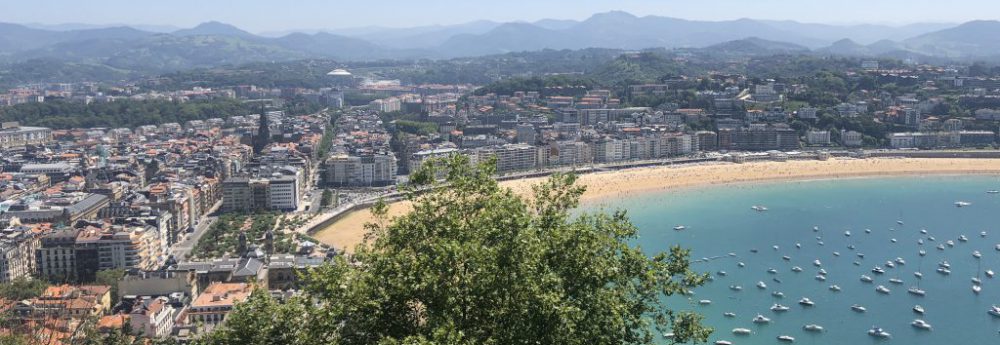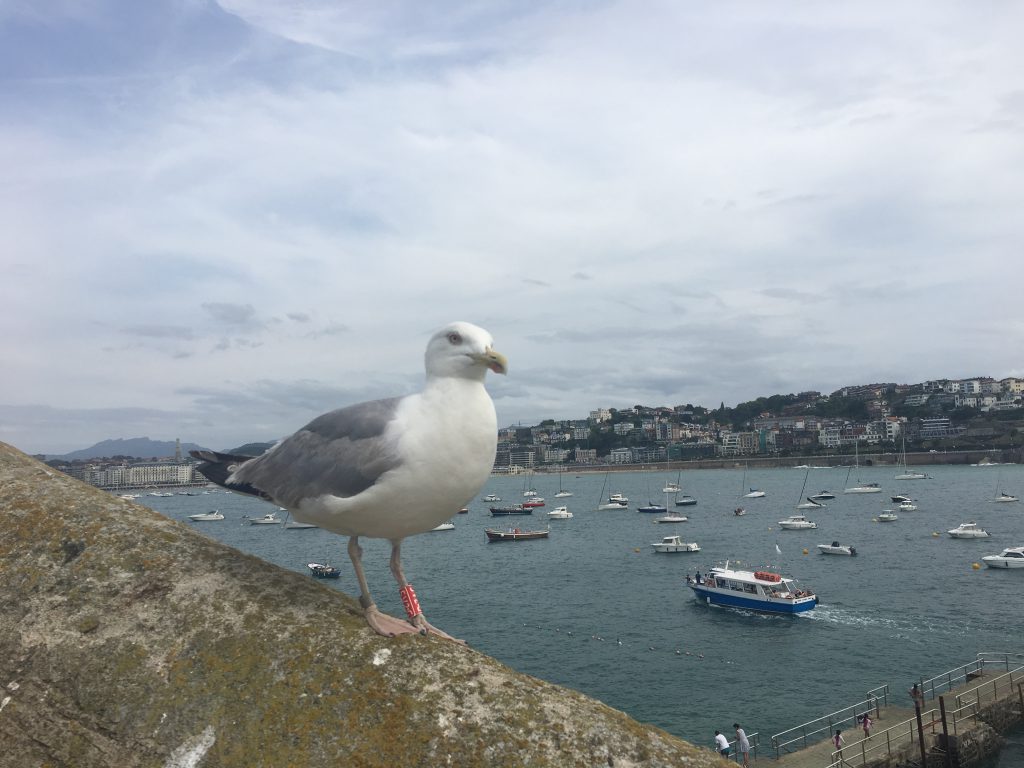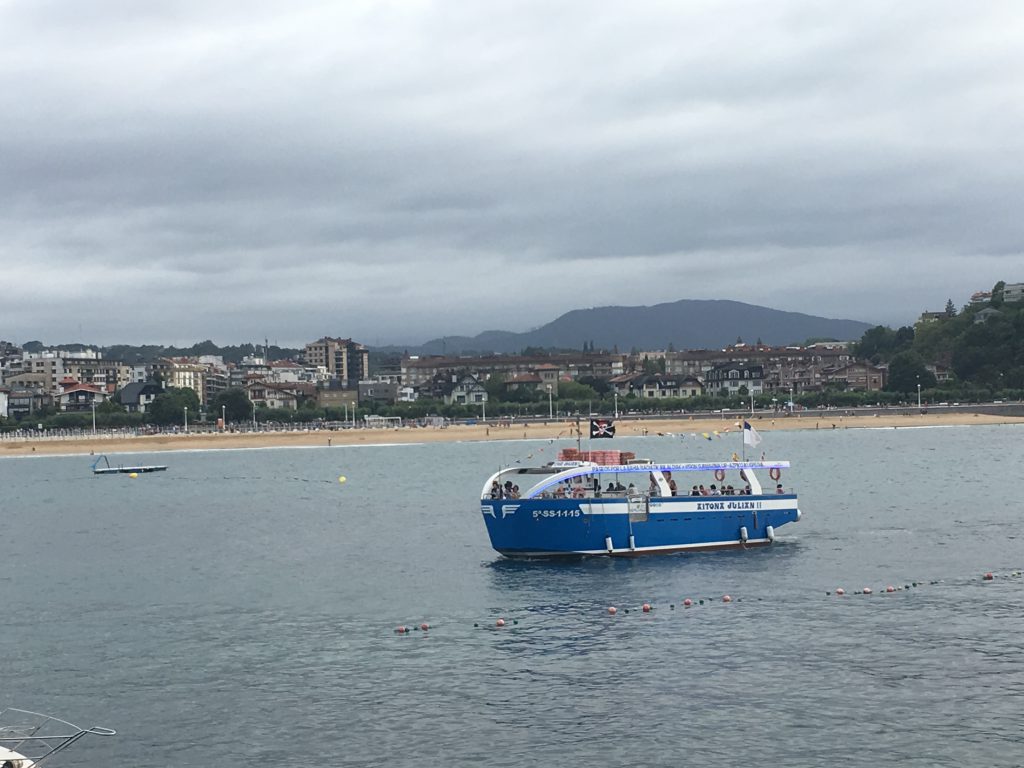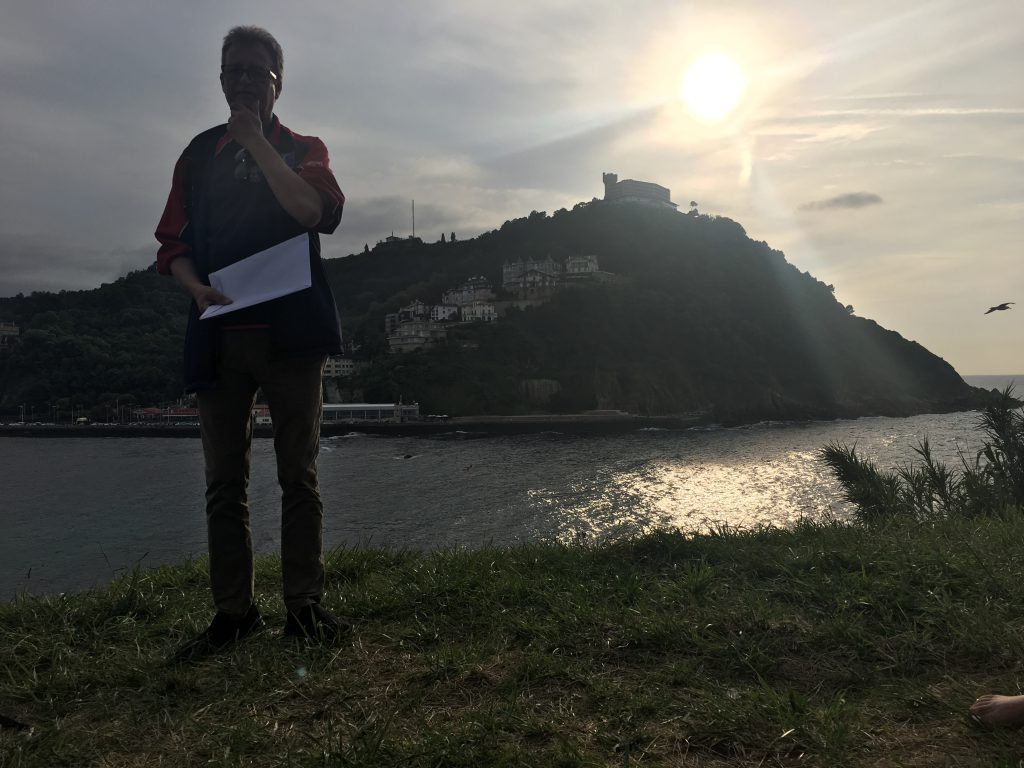It was Friday night and we all packed into the back room of a restaurant for one final meal together. Three weeks ago at this time we were all strangers to one another. We took a chance, and all decided to fly to a foreign country in order to expand our horizons. Now we are joined around the dinner table as friends, nearly at the end of our adventure. Over the course of the last three weeks I have been able to take part in a plethora of new experiences which all culminated in this dinner. I was able to taste some of the best cuisine in Europe through a Pintxo tasting tour. I got to participate in a cooking class at a local gastronomic society, where we were welcomed in and treated like regulars. I got to witness a jai alai match in the neighboring town of Hondarribia. I was also able to venture into France and witness some ancient witches caves.
Now as we sit around this table and share one last example of culinary excellence, it’s time to digest not only our food, but also what this trip meant to us. This time of reflection allowed me to recognize several major takeaways. The first thing I realized is that despite coming from different countries, speaking different languages, and having different cultures, people are fundamentally very similar. It was astonishing to me just how much I was able to understand what people were saying to me even though I understood little to no Spanish. For instance, our host mother Maritxu was a sweet old basque woman who graciously opened up her home to us. She did not speak any English and we spoke limited Spanish. When I first discovered this I was slightly panicked and thought that it would be a difficult 3 weeks. However, my initial worries were quickly put to rest once we actually met Maritxu. She seemed very happy to have us in her house and cook for us. We were also able to decipher almost everything she told us after a good while of gesticulation and slow speaking. Also everyone we met at Lacunza was very friendly and eager to share stories with us. Through this process I was shocked to discover just how similar we were to college students from all over the world.
As the farewell dinner carried on, and we devoured 5 giant steaks, another aspect of the trip dawned on me. This was the idea that exploration and immersion truly are the best ways to learn. We have only been in San Sebastián for 3 weeks, but I can confidently say that I have begun to feel a sense of belonging in the city. During the first few days we would wander the streets and get lost down the alleyways of the old town. However, by the end of our trip we were navigating the streets and neighborhoods like locals without a second thought. We would walk into a few of our favorite pintxo bars and the bartenders would already know our order. I also found myself explaining much of what I learned to the other students we met at Lacunza. This deep level of understanding would be borderline impossible without physically traveling to the city, and getting lost in the culture.
By this time in the feast we were all stuffed, and exhausted. To end the dinner we were all served a traditional basque dessert which was very good and oddly reminded me of popcorn. Then Julian gave us some parting words to wrap up the trip and that was it. I don’t think anyone fully accepted that the trip was over until the walk home. I walked back through Gros, crossed the canal, and went along the boulevard back to Maritxu’s apartment. The walk home was almost as if I was able to relive the trip as we passed each location that we visited and the memories came flooding in there was a certain stillness to the city. It was a strange sensation of joy and sadness. When we returned to Maritxu’s house we went up to the roof and took in the city for one last time.
The next day we woke up, made our beds, gave Maritxu a hug, thanked her for her incredible hospitality, and were sent on our way with one of Maritxu’s infamous peaches. Rob and I silently walked to the bus station eating our peaches and knew that it was time to wake up from the dream that was San Sebastián. Although I am uncertain weather or not I will be able to return to this city in the future. I do believe that we have made memories here that will last a lifetime. This adventure has allowed me to experience something profound, and for that I am eternally grateful.



